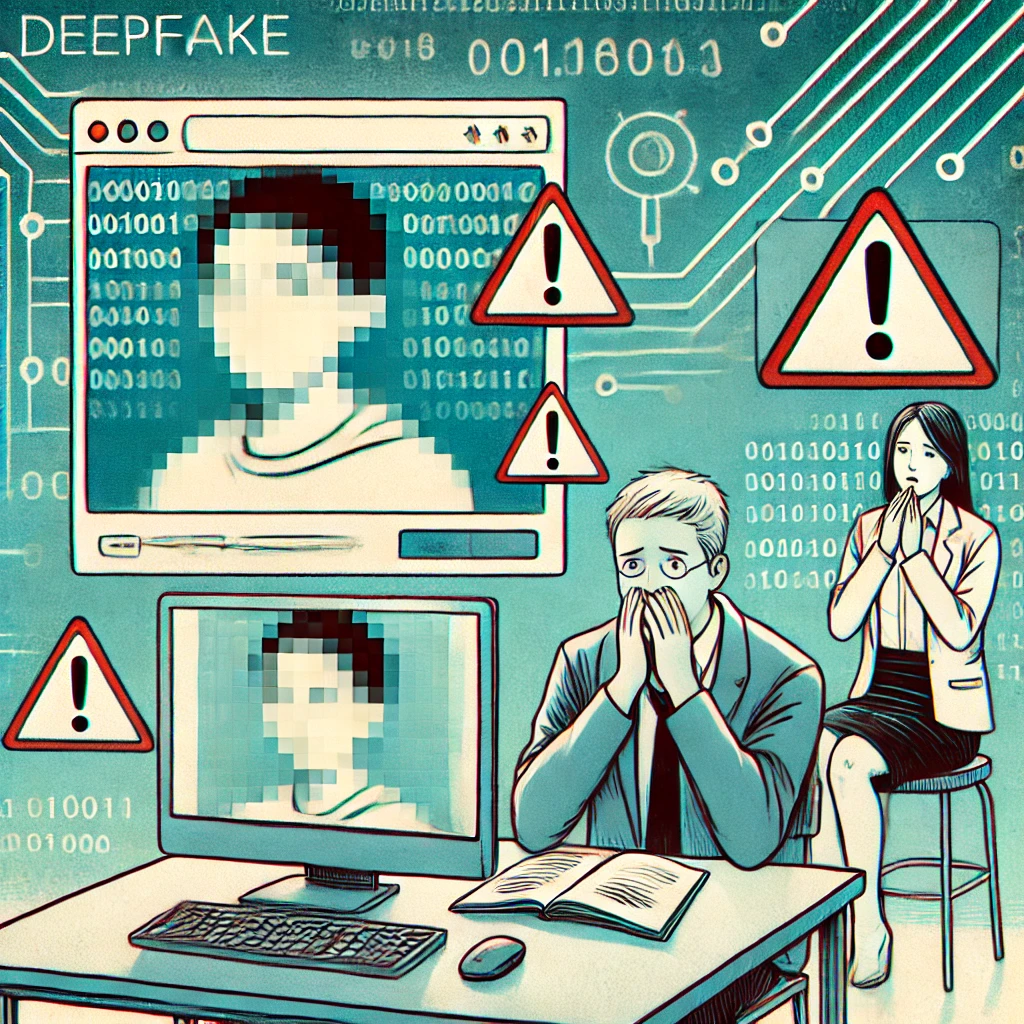South Korea is facing a troubling crisis involving deepfake pornography, which is increasingly targeting students and teachers in schools across the country. Deepfake technology, which uses AI to create highly realistic fake videos and images, is being misused to produce explicit content featuring school-aged children and educators, causing widespread fear, anxiety, and outrage.
What Are Deepfakes and Why Are They a Problem?
Deepfakes use advanced AI algorithms to manipulate or generate videos and images that appear incredibly realistic. By swapping faces, voices, or other characteristics, these tools can create content that looks authentic but is completely fabricated. While deepfakes can be used for harmless purposes, such as entertainment, they are increasingly being weaponized to create explicit content without consent.
In South Korea, a growing number of cases involve deepfake pornography featuring the faces of students or teachers placed on the bodies of adult film actors. This content is often shared on social media, messaging apps, or illicit websites, quickly spreading and causing significant psychological trauma to the victims.
Impact on Schools and Students
The deepfake crisis has had a profound impact on schools throughout South Korea. For students, the appearance of their faces in fabricated pornographic content can be devastating, leading to severe emotional distress, bullying, and even mental health issues like anxiety and depression. Some students have reportedly stopped attending school out of fear of being targeted or because they were shamed by their peers.
Teachers are also affected, with deepfakes being used to create fake pornographic videos that can damage their reputations and careers. The public nature of these videos can lead to humiliation and a loss of trust among students and colleagues. In some cases, teachers have had to leave their positions due to the fallout from these incidents.
Legal and Ethical Challenges
While South Korea has laws against the creation and distribution of sexually explicit content without consent, enforcement remains challenging. The speed at which deepfakes can be created and shared online makes it difficult for authorities to track down the perpetrators. Additionally, the lack of adequate regulations specifically addressing deepfake technology has made it easier for offenders to exploit legal loopholes.
Victims often face significant hurdles when seeking justice. Even when the content is removed, it can be re-uploaded elsewhere, creating a never-ending cycle of trauma. The law is often slow to adapt to new technologies, and victims can feel powerless as they try to regain control over their digital identities.
Government and School Responses
In response to this growing crisis, the South Korean government is working to implement stricter regulations on deepfake technology. New laws are being proposed to increase penalties for those who create and distribute non-consensual deepfake content, including jail time and hefty fines. Additionally, there is a push for tech companies to develop more advanced detection tools to identify and remove deepfake content quickly.
Schools, on the other hand, are beginning to incorporate digital literacy programs that teach students about the dangers of deepfake technology and how to protect themselves online. Educators are also being trained to recognize signs of distress among students and provide support to those who may have been targeted by deepfakes.
The Role of Technology Companies
Tech companies and social media platforms play a critical role in combating the spread of deepfake pornography. There is a growing demand for AI-powered tools that can detect deepfakes more accurately and promptly remove them. Some platforms have started implementing stricter policies and are using advanced machine learning models to identify manipulated content. However, more needs to be done to keep up with the rapid advancements in deepfake technology.
Looking Ahead: A Need for Global Solutions
The deepfake porn crisis in South Korean schools is a stark reminder of the dark side of AI technology and its potential for harm. While the country is taking steps to address the issue, there is a need for global cooperation and more robust regulatory frameworks to combat the misuse of deepfakes effectively.
This crisis also highlights the importance of education, awareness, and early intervention. Schools, parents, and policymakers must work together to protect young people from the dangers of digital manipulation and ensure that new technologies are used responsibly and ethically. As the deepfake problem continues to evolve, only a coordinated and comprehensive approach will help mitigate the damage and protect vulnerable individuals from exploitation.


